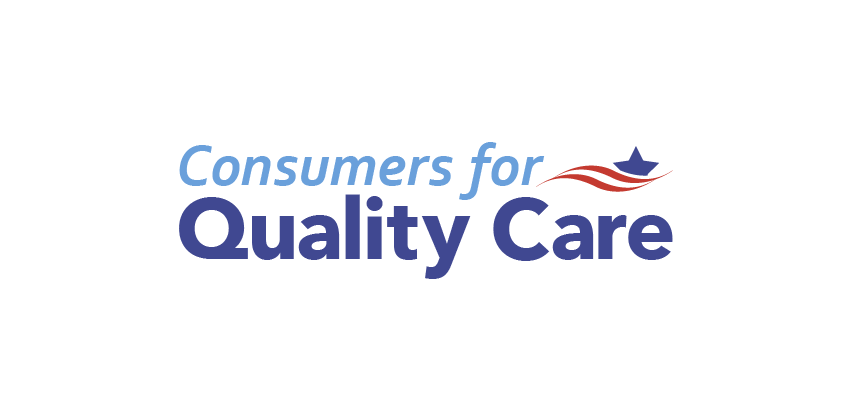CQC Nonprofit Hospital Scorecard: North Carolina Nonprofit Hospitals Earn a #HospitalFail
By Consumers for Quality Care, on April 14, 2022

FOR IMMEDIATE RELEASE
April 14, 2022
Contact:
press@consumers4qualitycare.org
CQC Nonprofit Hospital Scorecard: North Carolina Nonprofit Hospitals Earn a #HospitalFail
WASHINGTON – Despite being tax-exempt, nonprofit hospitals around the country are engaging in practices that put profits over patients. Recent findings from reports from the National Academy of State Health Policy (NASHP) and North Carolina State Health Plan and PatientRightsAdvocate.org reveal North Carolina nonprofit hospital practices that are at odds with what the public expects from charitable hospitals, such as a lack of price transparency and aggressive collection practices.
A statement from Consumers for Quality Care (CQC) reads: “In North Carolina, nonprofit hospitals must uphold their end of the bargain when it comes to serving their communities. By utilizing predatory billing tactics and not complying with federal price transparency regulations, many of the state’s hospitals are not doing everything they can to help patients in need. We urge these nonprofits to put people before profits and work to better serve all North Carolinians.”
Nonprofit Hospital Scorecard: North Carolina
| Charity Care | Despite their nonprofit status, most North Carolina nonprofit hospitals have failed to provide enough charity care to equal the tax breaks they received in 2020, valued at more than $1.8 billion.(1) |
| Billing | In 2019, 18 North Carolina nonprofit hospitals alone billed close to $150 million to patients whose health care costs should have been waived under the hospitals’ own charity care policies.(2) |
| Bad Debt | It is estimated that an average of 11.9% to 28.7% of bad debt for North Carolina nonprofit hospitals should have been charity care. The national average is only 10%.(3) |
| Price Transparency | A survey of 1,000 hospitals nationwide found that 17 of the 21 North Carolina hospitals included were not compliant with the federal hospital price transparency rules that require hospitals to post all prices online in an easily accessible format.(4) |
| Medical Debt | One in five North Carolina residents has medical debt in collections, which ranks sixth in the nation.(5) Among communities of color and low-income families in some rural counties, this number rises to nearly 50%.(6) |
| Collection Practices | Some North Carolina hospitals have sued patients, garnished their tax returns, damaged their credit and encouraged them to open medical credit cards charging interest rates as high as 11.25% after the first year.(7) |
| Profits | Some of North Carolina’s hospitals — including their nonprofit hospitals — continue to enjoy average profit margins higher than the national average. All the top 10 most profitable hospitals in North Carolina in 2019 were nonprofits.(8) |
GRADE: #HospitalFail
1 National Academy of State Health Policy (NASHP) and North Carolina State Health Plan, “N.C. Nonprofit Hospitals Bill the Poor,” January 26, 2022, pg. 2, https://www.shpnc.org/media/2692/download?attachment
2 The News & Observer, “NC nonprofit hospitals are supposed to provide charity care, but bill poor patients,” January 26, 2022, https://www.newsobserver.com/news/politics-government/article257730803.html
3 The Center Square, “Report: North Carolina nonprofit hospitals billed charity care patients millions, despite tax breaks,” January 26, 2022, https://www.thecentersquare.com/north_carolina/report-north-carolina-nonprofit-hospitals-billed-charity-care-patients-millions-despite-tax-breaks/article_5be0877c-7ef3-11ec-b63a-0b72b94674d7.html
4 PatientRightsAdvocate.org, “Semi-Annual Hospital Price Transparency Compliance Report”, February 2022, pgs. 36-37, https://www.patientrightsadvocate.org/semi-annual-compliance-report-2022
5 Spectrum News, “Report: More than 20% of people living in North Carolina have medical debt,” June 3, 2021, https://spectrumlocalnews.com/nc/charlotte/news/2021/06/03/many-north-carolinians-are-facing-medical-debt
6 Urban Institute, “Debt in America: An Interactive Map,” March 31, 2021, https://apps.urban.org/features/debt-interactive-map/?type=overall&variable=pct_debt_collections
7 National Academy of State Health Policy (NASHP) and North Carolina State Health Plan, “N.C. Nonprofit Hospitals Bill the Poor,” January 26, 2022, pg. 3, https://www.shpnc.org/media/2692/download?attachment
8 National Academy of State Health Policy (NASHP) and North Carolina State Health Plan, “N.C. Nonprofit Hospitals Bill the Poor,” January 26, 2022, pg. 7, https://www.shpnc.org/media/2692/download?attachment
Visit CQC’s Nonprofit Hospital Scorecards here.
ABOUT
Consumers for Quality Care (CQC) is a coalition of advocates and former policymakers working to provide a voice for patients in the health care debate as they demand better care. CQC is led by a board of directors that includes the Honorable Donna Christensen, physician and former Member of Congress; Jim Manley, former senior advisor to Senators Edward Kennedy and Harry Reid; Jason Resendez, community advocate and health care strategist; and Mary L. Smith, former head of Indian Health Service.
